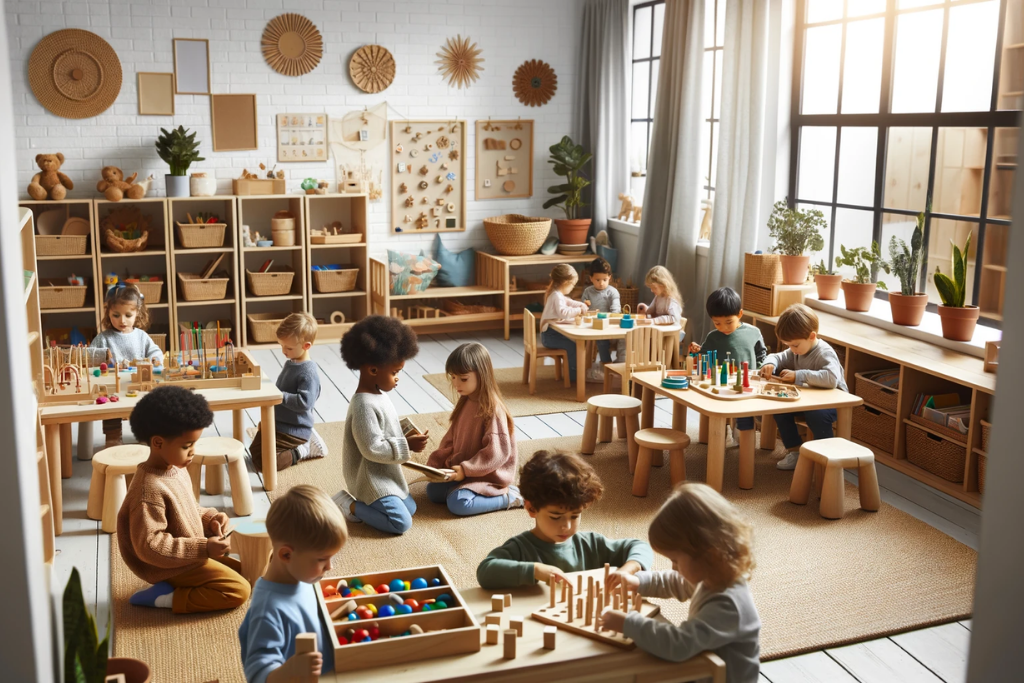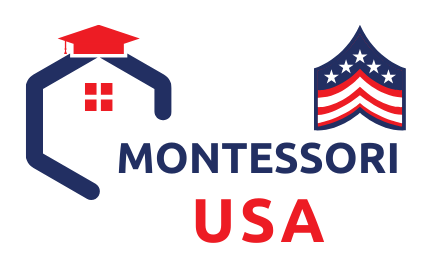The Montessori method has long stood as a beacon of progressive, child-centered learning in early childhood education. At the heart of this educational approach is ‘Learn and Play Montessori,’ a philosophy that intertwines the joy of play with the rigor of learning. This method respects children’s natural development and cultivates a love for learning that lasts a lifetime.
Key Insights:
- Montessori Method: A unique educational approach focusing on individual learning and hands-on activities.
- Play-Based Learning: Integrating play into education enhances learning experiences and developmental outcomes.
- Montessori Schools: These institutions offer a unique environment for holistic child development.
- Online Montessori Options: Adapting the Montessori method to the digital age, offering flexibility and accessibility.
- Choosing the Right School: Essential factors to consider when selecting a Montessori school for your child.
Understanding the Montessori Method
The Montessori method, developed by Dr. Maria Montessori, is a child-centered educational approach based on scientific observations of children from birth to adulthood. It emphasizes independence, freedom within limits, and respect for a child’s natural psychological, physical, and social development.
Key Principles of Montessori Education:
- Child-Centered Learning: Each child is viewed as a unique individual.
- Prepared Environment: Classrooms are designed to meet the needs and interests of children.
- Hands-On Learning: Emphasis on learning through doing.
- Trained Montessori Teachers: Educators act as guides and observers.
Incorporating ‘Learn and Play’ into this method means recognizing the importance of play in learning. Play is not just recreation; it is an essential part of learning, allowing children to explore, experiment, and understand the world around them.
Benefits of Learn and Play in Montessori
Integrating play into the Montessori method offers numerous benefits:
- Enhanced Learning Experiences: Play makes learning enjoyable and memorable.
- Social and Emotional Development: Through play, children learn to interact, share, and resolve conflicts.
- Cognitive Growth: Play stimulates imagination and creativity, fostering problem-solving skills.
- Physical Development: Active play promotes motor skills.
Studies have shown that children engaging in play-based learning environments have better academic outcomes and social skills. Psychology Today offers insights into how play shapes the brain, opens the imagination, and invigorates the soul.
Montessori Schools and Their Approach to Learning
Montessori schools across the US, particularly in the San Francisco Bay Area, have embraced the ‘Learn and Play’ philosophy. These schools offer a unique environment where children can explore and learn independently in a supportive and nurturing setting.
Characteristics of Montessori Schools:
- Mixed Age Classrooms: Encourages peer learning and social interaction.
- Individualized Learning Plans: Tailored to each child’s developmental needs and interests.
- Focus on the Whole Child: Emphasis on nurturing the physical, emotional, social, and cognitive development of each child.
In these schools, ‘Learn and Play’ is not just a method; it’s a way of life. Children can choose their activities, fostering a sense of independence and a love for learning.
Online Montessori Education: A New Frontier
Online learning has brought the Montessori method into the digital age. Online Montessori programs offer a blend of the traditional Montessori approach with the convenience and flexibility of online education.
Advantages of Online Montessori:
- Accessibility: Makes Montessori education accessible to a wider audience.
- Flexibility: Allows for learning at a pace that suits each child.
- Continuity: Offers a consistent educational approach, regardless of location.
These programs often include virtual classrooms, interactive learning materials, and guidance from trained Montessori educators. They provide an alternative for families who may not have access to traditional Montessori schools.

Choosing the Right Montessori School for Your Child
When selecting a Montessori school, especially one that embraces the ‘Learn and Play’ philosophy, several factors should be considered to ensure the best fit for your child.
Key Considerations:
- Accreditation and Philosophy: Look for schools that adhere to authentic Montessori principles. The American Montessori Society offers resources to identify accredited institutions.
- Environment and Facilities: The learning environment should be inviting, well-organized, and equipped with Montessori materials.
- Teacher Qualifications: Ensure that educators are trained in the Montessori method.
- Parental Involvement: A good Montessori school encourages active parental involvement in learning.
By carefully evaluating these factors, parents can find a school that meets their child’s educational needs and nurtures their innate curiosity and love for learning.
FAQs
Q: What is the Montessori Method?
A: The Montessori Method is an educational approach developed by Dr. Maria Montessori, focusing on child-centered learning with an emphasis on independence, hands-on learning, and a respectful understanding of each child’s natural development.
Q: How does ‘Learn and Play’ fit into Montessori education?
A: ‘Learn and Play’ in Montessori education integrates play into the learning process, recognizing it as a crucial element for cognitive, social, and emotional development. It allows children to explore concepts in a fun, engaging way.
Q: Are Montessori schools suitable for all children?
A: Montessori schools cater to many learning styles and can be particularly beneficial for children who thrive in a hands-on, self-paced learning environment. However, it’s important to consider each child’s needs and preferences.
Q: What are the benefits of online Montessori programs?
A: Online Montessori programs offer flexibility, accessibility, and continuity in education. They are especially useful for families without access to traditional Montessori schools or those who prefer a home-based learning environment.
Q: How can I ensure a Montessori school is right for my child?
A: Visit the school, observe the classrooms, talk to the teachers, and understand their approach to ‘Learn and Play’. Assess how the school’s philosophy aligns with your child’s learning style and needs.
Conclusion
The ‘Learn and Play Montessori’ approach offers a unique and effective way of learning, blending the structured, child-centered Montessori method with the creative freedom of play. This approach fosters academic skills and nurtures social, emotional, and physical development. Whether through traditional schools or online platforms, Montessori education provides a foundation for lifelong learning and curiosity.
As we navigate the choices in early childhood education, it’s clear that Montessori, with its emphasis on individualized learning and holistic development, stands out as a powerful option. For parents and educators alike, embracing the ‘Learn and Play’ philosophy could be the key to unlocking a child’s full potential.
Remember, the right Montessori environment can make a significant difference in your child’s educational journey, whether in a physical classroom or online. Explore, ask questions, and choose a path that aligns with your child’s unique way of learning and exploring the world.

Sources:
Montessori Method Principles – A detailed look at the Montessori method.
Benefits of Play in Learning – Discussing the role of play in child development.
Choosing a Montessori School – Guide to selecting the right Montessori school.

